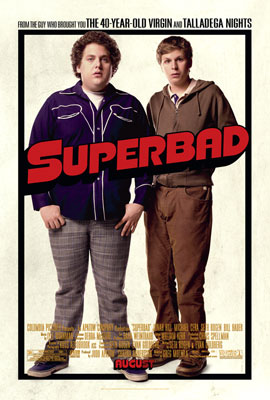Thursday, March 20, 2008
Boycott Beijing...and then Vancouver!
It’s getting ugly in Tibet. From the point of view of the exile community, and those who have been on the business-end of Chinese police clubs, it has been ugly for a while.
The Olympics have been boycotted many times. In 1976 in Montréal many African nations boycotted the games over the New Zealand rugby team playing in apartheid South Africa. The 1980 Moscow games were boycotted because the U.S.S.R. went pulling into Afghanistan. And then, the 2nd world boycotted the Los Angeles games in 1984, which saw many countries, such as Canada, claim a record amount of medals.
For the Beijing games, there is certainly enough at stake to call a boycott. There are abuses in Tibet, environmental devastation through out China, and of course China’s non-partisan attitude to purchasing energy from the Sudan. Human and environmental rights are being sacrificed on the altar of progress.
The media has been pushing the point of a boycott. The official response from governments and athletes? “No no don’t boycott, rather the games can be a forum to share and exchange views.” How often do you sit down to share and exchange views during the track and field sessions? Or fencing for that matter? Like seriously, during the triathlon, what’s the goal, ride up alongside the Chinese athlete and discuss the free Tibet movement?
The U.S. and Canada are going to offer some seminars and courses on how to be good ambassadors during the games. Ambassadors, little more than mailmen at the best of times, are often trained to parrot their governments’ agenda rather than build dialogue. For Canada, the policy is clear, “There is only one official government in China.” End of dialogue.
Boycotting Beijing would be about saying “no” to a sponsor, that being the Chinese state, who humiliates and abuses another people. The investment that Beijing has put into the games has been huge, and refusing the Olympics, leaving the stands and fields empty, would be an outstanding message against how China is behaving.
But for the past twenty years Olympic athletes have dropped ball in standing up against sponsors who humiliate. McDonald’s and Coca-Cola were the official food sponsors of the Atlanta games after all. Private corporations are the key sponsors to the Olympics, offering support for the games in exchange for advertising. Already their influence has seen a drastic change in the culture of the Olympics and the acceptance of hyper-consumerism which has time and time again slaughtered human and environmental rights on the altar of progress. And no one, bothered even for a minute to strike a boycott against the influence of corporate sponsors.
“Want to catch the Olympic spirit? Then chew down a McDisaster, wash it back with a Coke, and for god’s sake don’t leave your television for a second…the last thing you would want to do is actually get off your ass and exercise.”
The athletes themselves, upon winning the gold, are no longer true heroes of the sport; they are walking billboards for shoes, shampoo and frighteningly neon power drinks. They don’t criticize their sponsors, they just follow suit, because they don’t want to jeopardize potentially strong economic relations.
In China the message is already clear that athletes and their governments will not criticize their sponsors either, because they don’t want to jeopardize potentially strong economic relations.
The Olympics are a twisted mess of corporatism and nauseating nationalist myth and rhetoric, and to un-mess them, there would have to be a strong, unified movement, starting with the athletes themselves, saying that the right to compete in sport will not rely on unjust sponsorship…no matter if it comes from Beijing, Coke or Shell Oil.
In order to get this movement going it would have to start in Beijing, carry on to Vancouver, and then London…until repressive governments and aggressive corporate sponsors are laid to wayside.
The Olympics have been boycotted many times. In 1976 in Montréal many African nations boycotted the games over the New Zealand rugby team playing in apartheid South Africa. The 1980 Moscow games were boycotted because the U.S.S.R. went pulling into Afghanistan. And then, the 2nd world boycotted the Los Angeles games in 1984, which saw many countries, such as Canada, claim a record amount of medals.
For the Beijing games, there is certainly enough at stake to call a boycott. There are abuses in Tibet, environmental devastation through out China, and of course China’s non-partisan attitude to purchasing energy from the Sudan. Human and environmental rights are being sacrificed on the altar of progress.
The media has been pushing the point of a boycott. The official response from governments and athletes? “No no don’t boycott, rather the games can be a forum to share and exchange views.” How often do you sit down to share and exchange views during the track and field sessions? Or fencing for that matter? Like seriously, during the triathlon, what’s the goal, ride up alongside the Chinese athlete and discuss the free Tibet movement?
The U.S. and Canada are going to offer some seminars and courses on how to be good ambassadors during the games. Ambassadors, little more than mailmen at the best of times, are often trained to parrot their governments’ agenda rather than build dialogue. For Canada, the policy is clear, “There is only one official government in China.” End of dialogue.
Boycotting Beijing would be about saying “no” to a sponsor, that being the Chinese state, who humiliates and abuses another people. The investment that Beijing has put into the games has been huge, and refusing the Olympics, leaving the stands and fields empty, would be an outstanding message against how China is behaving.
But for the past twenty years Olympic athletes have dropped ball in standing up against sponsors who humiliate. McDonald’s and Coca-Cola were the official food sponsors of the Atlanta games after all. Private corporations are the key sponsors to the Olympics, offering support for the games in exchange for advertising. Already their influence has seen a drastic change in the culture of the Olympics and the acceptance of hyper-consumerism which has time and time again slaughtered human and environmental rights on the altar of progress. And no one, bothered even for a minute to strike a boycott against the influence of corporate sponsors.
“Want to catch the Olympic spirit? Then chew down a McDisaster, wash it back with a Coke, and for god’s sake don’t leave your television for a second…the last thing you would want to do is actually get off your ass and exercise.”
The athletes themselves, upon winning the gold, are no longer true heroes of the sport; they are walking billboards for shoes, shampoo and frighteningly neon power drinks. They don’t criticize their sponsors, they just follow suit, because they don’t want to jeopardize potentially strong economic relations.
In China the message is already clear that athletes and their governments will not criticize their sponsors either, because they don’t want to jeopardize potentially strong economic relations.
The Olympics are a twisted mess of corporatism and nauseating nationalist myth and rhetoric, and to un-mess them, there would have to be a strong, unified movement, starting with the athletes themselves, saying that the right to compete in sport will not rely on unjust sponsorship…no matter if it comes from Beijing, Coke or Shell Oil.
In order to get this movement going it would have to start in Beijing, carry on to Vancouver, and then London…until repressive governments and aggressive corporate sponsors are laid to wayside.
Labels: capitalism, China, Olympics, Tibet
Comments:
I agree, we should all boycott the Beijing Olympics! The Vancouver Olympics should also be boycotted since we have mostly Chinese here in Vancouver!
I don't see a lot of difference between staging the Olympics in Beijing, now, and the Nazi Germany wankfest that was Berlin in 1936.
Lets get the checklist out:
Fascist? Check.
Scary military power? Check.
Human rights abuse? Check.
Lunatic figurehead? Check.
There'll be a few more checks I've missed I'm sure.
I guess when someone either scares you, or owns you, what do you do?
--------Polar Bob.
Lets get the checklist out:
Fascist? Check.
Scary military power? Check.
Human rights abuse? Check.
Lunatic figurehead? Check.
There'll be a few more checks I've missed I'm sure.
I guess when someone either scares you, or owns you, what do you do?
--------Polar Bob.
I am boycotting china and chinese goods. I also think Tibet should be free. But guess what, I am, as many would see me as, a chinese here in Vancouver as well. In fact, i am from Taiwan, not china, and hate to be identified the same as mainland chinese. Please know that Vancouver Asian community is made up of many different races, including cantonese from hong kong, taiwanese, korean, and japanese. Some of them could look identical to a mainland Chinese but hate to be called one.



















Post a Comment